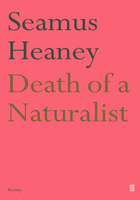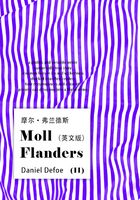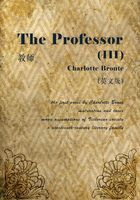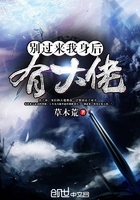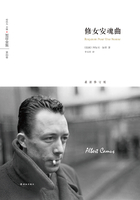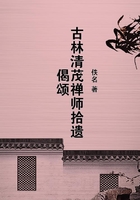'And what about me?' she replied. 'At least you pulled that dumb trick because you wanted to, but you got me into this mess and didn't even ask my opinion. They're going to look for us, maybe they'll kill us. And nobody's going to believe what really happened. They'll say that you work for the police and I was your accomplice.'
'Didn't she know you were in the Civil Guard?' Lituma asked in surprise.
'And I don't even know your name,' the boy recalled.
There was a sudden silence, as if the motor had been turned off, but it immediately began to roar and boil again. Tomás thought those little lights up there were an airplane.
'Mercedes.'
'Is that your real name?'
'I only have one,' she said angrily. 'And in case you were wondering, I'm not a whore. I was his girlfriend. He took me out of a show I was working in.'
'At the Vacilón, a club in downtown Lima,' the guard explained. 'She wasn't the only one. Hog had a string of girlfriends. Iscariote introduced him to five at least.'
'What a life.' Lituma sighed. 'Five at the same time! A change of woman every day, every night, like underwear or shirts. And here we are, Tomasito, starving to death.'
'My back was aching,' his adjutant went on, absorbed in his memories. 'There was no way to persuade the driver to let us ride in the cab. He was afraid we'd attack him. We were covered with bruises. And I was eaten up by doubts when I thought about what Mercedes had said. Could it be true, was all her crying just an act to get him excited? What do you think, Corporal?'
'I don't know what to say, Tomasito. It probably was an act. He pretended to beat her, she pretended to cry, then he got hot and got off. I've heard about guys like that.'
'What a pig, a real pig,' his adjutant growled. 'He deserved to die, damn it.'
'And in spite of everything you fell in love with Mercedes. Love's really complicated, Tomasito.'
'Don't I know it,' murmured the guard. 'If it wasn't for love I wouldn't be in the damn barrens waiting for some motherfucking fanatics to decide to come and kill us.'
'Did you hear something? I'm going to have a look around, just in case.' Lituma listened intently. He stood, holding his revolver, and went to the door of the shack. He peered in all directions and came back to his cot, laughing. 'No, it's not them. I thought I saw the mute taking a shit in the moonlight.'
What would happen to him now? Better not think about it. Just get to Lima and then he'd see. Could he face his godfather after this? It would be a bitter pill to swallow. He had always behaved like a gentleman and this is how you repay him. That's called being a real asshole, Carre?o. Yes, but he didn't care. He felt better now, bouncing around with each jolt of the truck and touching her sometimes; much better than back in Tingo María, shaking, sweating, choking, leaning against the walls of that house, listening to his filthy shit. All those moans, pleas, blows, threats, just an act, just a lie? False. Or, unexpectedly, true.
'I didn't regret a thing, Corporal, and that's the truth,' Tomás declared. 'Whatever happened to me would happen. Because I was already crazy about her, just like you guessed.'
The motion and the sweet aroma of the mangoes made them both drowsy. Mercedes tried to rest her head against a sack, but the bouncing of the truck made that impossible. Carre?o heard her grumble, saw her bury her face in her hands as she shifted again and again in an effort to find a comfortable position.
'Let's make a deal,' he heard her say at last, trying to be casual. 'You lean on my shoulder for a while, and then I'll lean on you. If we don't get some sleep, we'll be dead on our feet by the time we get to Huánuco.'
'Well now, things are getting interesting,' remarked Lituma. 'Tell me once and for all about the first time you fucked her, Tomasito.'
'Right then and there I stretched out my arm and made a little place for her,' Tomás said joyfully. 'I felt her body coming close to mine, I felt her head resting on my shoulder.'
'And, of course, you got a hard-on,' said Lituma.
The boy didn't take the hint this time, either.
'I put my arm around her, I rested my hand on her,' he explained. 'Mercedes was sweating. So was I. Her hair brushed my face, tickled my nose. I felt the curve of her hip right next to mine. When she spoke, her lips touched my chest, and I could feel her warm breath right through my shirt.'
'Son of a bitch, the one who's getting a hard-on here is me,' said Lituma. 'So what do I do now, Tomasito? Jerk off?'
'Go out and take a leak, Corporal. The cold will make it go down.'
'Are you religious? A good Catholic? Can't you accept that a man and a woman do certain things? Was it sin or something that made you kill him, Carre?ito?'
'I felt happy having her so close,' his adjutant admitted. 'I kept my mouth closed tight, stayed very still, listened to the truck struggling up the Cordillera, and that's how I could stand how much I wanted to kiss her.'
'Don't get angry because I asked,' Mercedes insisted. 'It's just that I'm trying to understand why you killed him, and nothing comes to me.'
'Go to sleep and don't think about it,' the boy said. 'Like me. I don't remember anymore. I've forgotten about Hog and Tingo María. And don't bring religion into it.'
It was the dead of night over the great peaks of the Andes, which seemed to grow higher with each curve in the road. But down in the jungle they were leaving behind, day was breaking in a thin bluish-white streak along the horizon.
'Did you hear that? Did you?' Lituma sat up abruptly in his cot. 'Grab your revolver, Tomasito. I'll swear those are footsteps coming up the hill.'
3
'Maybe they got rid of Casimiro Huarcaya because they thought he was a pishtaco,' said Dionisio the cantinero. 'He spread the rumor himself. I don't know how many times I heard him bellow like a wild boar, right there where you're standing: "I'm a pishtaco and so what? One of these days I'll slice up your fat and suck out your blood. All of you." Maybe he was a little high, but everybody knows drunks tell the truth. The whole cantina heard him. By the way, are there any pishtacos in Piura, Corporal, sir?'
Lituma raised the glass of anisette that the cantinero had just poured, said 'Cheers' to his adjutant, and drank it in one swallow. The sweet-tasting warmth went down to his belly and raised his spirits, which had been dragging on the ground all day.
'Personally, I've never heard of pishtacos in Piura. Now, spirit-chasers are a different story. I knew one in Catacaos. He would go to houses where there were souls in torment and talk to them and get them to leave. Of course, a spirit-chaser isn't much compared to a pishtaco.'
The cantina was in the very center of the camp, surrounded by the barracks where the laborers slept. It had a low ceiling, benches and crates that served as chairs and tables, a dirt floor, and pictures of naked women tacked to the plank walls. The place was always crowded at night, but it was still early – the sun had just set – and in addition to Lituma and Tomás there were only four other men, all wrapped in scarves, and two wearing hard hats; they were sitting at a table and drinking beer. The corporal and the guard each carried his second glass of anisette to the adjoining table.
'I can see that what I said about the pishtaco hasn't convinced you.' Dionisio laughed.
He was a fat, flabby man with a sooty face that looked as if it had been streaked with coal, and greasy, kinky hair. He was stuffed like a sausage into a blue sweater that he never took off, and his eyes were always bloodshot and burning, for he drank along with his customers. Though he never became completely drunk. At least Lituma had never seen him in the state of total intoxication that so many laborers reached on Saturday nights. He usually played Radio Junín at top volume, but tonight he hadn't turned on the radio yet.
'Do you believe in pishtacos?' Lituma asked the men at the next table. Four faces, half hidden by shawls, turned toward him. They all seemed made from the same mold – skin burned by hot sun and cutting cold, evasive, inexpressive eyes, noses and lips livid with harsh weather, unruly hair – and it was difficult for him to tell them apart.
'Who knows?' one of them answered at last. 'Maybe.'
'I do,' one of the men in a hard hat said after a moment. 'They must exist if so many people talk about them.'
Lituma narrowed his eyes. He could see him. A stranger. Half gringo. At first glance you didn't know what he was because he looked just like everybody else in this world. He lived in caves and committed his crimes at night. Lurking along the roads, behind boulders, hiding among haystacks or under bridges, waiting for solitary travelers. He would approach with cunning, pretending to be a friend. His powder made from the bones of the dead was all ready, and at the first careless moment he threw it in his victims' faces. Then he could suck out their fat. Afterward he let them go, emptied, nothing but skin and bone, doomed to waste away in a few hours or days. These were the benign ones. They needed human fat to make church bells sing more sweetly and tractors run more smoothly, and now, lately, to give to the government to help pay off the foreign debt. The evil ones were worse. They not only slit their victims' throats but butchered them like cattle, or sheep, or hogs, and ate them. Bled them drop by drop and got drunk on the blood. Son of a bitch, the serruchos believed this stuff. Did that witch Do?a Adriana really kill a pishtaco?
'Casimiro Huarcaya was an albino,' murmured the laborer who had spoken first. 'What Dionisio said might be true. Maybe they took him for a pishtaco and knocked him off before he could cut out their fat.'
His companions celebrated his remarks with whispers and giggles. Lituma felt his pulse quicken. Huarcaya had broken rocks and shoveled dirt and sweated alongside these men on the unfinished highway; now he was either dead or kidnapped. And these fuckers allowed themselves the luxury of making jokes.
'You don't give a shit about any of this,' he said accusingly. 'What happened to the albino could happen to you. And suppose the terrucos attack Naccos tonight and start their people's trials the way they did in Andamarca? How'd you like to be stoned to death for being traitors or faggots? How'd you like to be whipped for being drunkards?'
'Well, I'm not a drunkard, or a traitor, or a faggot, so I wouldn't like it at all,' said the man who had spoken earlier.
His companions congratulated him with titters and nudges.
'What happened in Andamarca is a sad business.' One of the men who had not said anything yet spoke seriously. 'But at least they were all Peruvians. I think what happened in Andahuaylas is worse. Those French kids, you know, what can you say? Why mix them up in our troubles? Not even foreigners are safe.'
'I believed in pishtacos when I was a kid,' Carre?o interrupted, speaking to the corporal. 'My grandmother used to scare me with stories about them when I made he rmad. I grew up suspicious of every stranger who came through Sicuani.'
'And do you think the pishtacos dried and sliced up the mute, and Casimiro Huarcaya, and the foreman?'
The guard drank from the glass of anisette.
'Like I told you before, Corporal, the way things are going, I'm ready to believe anything that comes along. As a matter of fact, I'd rather deal with pishtacos than terrucos.'
'You're right to believe,' the corporal agreed. 'If you want to understand what goes on around here, you're better off believing in devils.'
Those French kids in Andahuaylas, for example. They took them off the bus and beat their faces to a pulp, according to Radio Junín. What was the point of being so brutal? Why not just shoot them and be done with it?
'We've gotten used to cruelty,' said Tomasito, and Lituma noticed that his adjutant looked pale. The anisette had made his eyes shine and weakened his voice. 'I'm speaking for myself now, and I mean every word. Did you ever hear of Lieutenant Pancorvo?'
'Can't say I have.'
'I was in his squad when the terrucos slaughtered the vicu?as in Pampa Galeras. We caught one, and he wouldn't open his mouth. "You can quit acting so innocent and looking at me like you don't understand," the lieutenant told him. "I'm warning you: if I start the treatment, you'll sing like a canary." And we gave him the treatment.'
'What was the treatment?' Lituma asked.
'We burned him with matches and lighters,' Carre?o explained. 'Starting with his feet and then the rest of him, little by little. No lie, with matches and lighters. It was very slow. His flesh started to cook, he smelled like roast pork. I was pretty green in those days, Corporal. It made me sick to my stomach and I almost passed out.'
'Imagine what the terrucos will do to you and me if they take us alive,' said Lituma. 'And you gave him the treatment, too? After something like that, how could you hand me a song and dance about Hog smacking that girl around in Tingo María?'
'That wasn't the worst of it.' Tomasito was deathly pale now, and stumbling even more over his words. 'It turned out he wasn't even a terruco. He was retarded and didn't talk because he couldn't. He didn't know how. Somebody from Abancay recognized him. "Listen, Lieutenant, he's a half-wit from my town, how can Pedrito Tinoco talk if he's never made a sound in his life?"'
'Pedrito Tinoco? You mean our Pedrito Tinoco? The little mute?' The corporal drank from a fresh glass of anisette. 'Are you kidding me, Tomasito? Son of a bitch, son of a bitch.'
'He was the caretaker on the reserve.' Tomás nodded and took a drink, too; he held the glass in shaking hands. 'We fixed him up the best we could. The squad took up a collection for him. We all felt bad, even Lieutenant Pancorvo, and me more than all of them put together. That's why I brought him here. Didn't you ever see the scars on his feet, his ankles? That's when I lost my cherry, Corporal. After that, nothing could scare me or make me feel bad. I became hard like everybody else. I didn't tell you before because I was ashamed. And without the anisette I wouldn't have told you tonight, either.'
To keep from thinking about the mute, Lituma tried to imagine the faces of the three missing men smashed to a bloody pulp, the eyes bursting out of their sockets, the bones pulverized, like those French kids, or burned over a slow fire, like Pedrito Tinoco. Son of a bitch, he couldn't think about anything else.
'Let's get out of here.' He swallowed the rest of the anisette and stood up. 'Before it turns any colder.'
As they were leaving, Dionisio blew them a kiss. The cantinero was circulating among the tables, which were crowded with laborers now, clowning the way he did every night: doing dance steps, filling his patrons' glasses himself with pisco or beer, encouraging them to dance with each other since there were no women. His unashamed camping always irritated Lituma, and when the cantinero went into action, the corporal left. They said good night to Do?a Adriana, who was tending bar. She responded with an exaggerated, somewhat sarcastic bow. She had just tuned in Radio Junín, and Lituma recognized the bolero 'Moonbeam.' He had once seen a movie by that name, and Ninón Sevilla, a blonde with long legs, had danced in it. Outside, the generator that provided light for the barracks had just been turned on. A few silhouettes in hard hats or ponchos moved around the area and responded with a grunt or a nod when the police officers greeted them. Lituma and Carre?o covered their mouths and noses with scarves, and set their kepis firmly on their heads so they would not blow off. The wind whistled with a melancholy sound that rebounded off the hills, and they hunched over as they walked and kept their heads down.
Suddenly, Lituma came to an abrupt stop. 'Son of a bitch! It makes me sick to my stomach,' he exclaimed indignantly.
'What does, Corporal?'
'All of you torturing the poor mute there in Pampa Galeras.' He raised his voice, trying to see his adjutant's face in the lantern light. 'Doesn't something that barbaric give you a guilty conscience?'
'It did at first, I felt awful,' Carre?o said softly, his head down. 'Why do you think I brought him to Naccos? Up here I was making amends. What happened to him wasn't my fault, was it? And we treated him fine here, we gave him food and a roof over his head, didn't we, Corporal? Maybe he's forgiven me. Maybe he knows that if he'd stayed up there in the barrens, they would've killed him by now.'
'To tell the truth, I'd rather hear about your adventures with Mercedes, Tomasito. The story of what happened to the mute makes me feel like shit.'
'I wish I could forget it too, I swear.'
'The things I've found out in Naccos,' Lituma grumbled. 'Being a Civil Guard in Piura and Talara was a piece of cake. The sierra is hell, Tomasito. And no wonder, it has so many serruchos.'
'Why do you hate mountain people so much, if you don't mind my asking?'
They had begun to climb the slope to the commissary, and since they had to bend over to walk, they took the rifles from their shoulders and carried them in their hands. As they moved away from the camp, they were plunged further into darkness.
'Well, you're a serrucho and I don't hate you. I like you a lot.'
'Thanks for the compliment.' The guard laughed. And a moment later: 'You shouldn't think that people in camp are unfriendly because you're from the coast. It's because you're a cop. They're cold to me, too, and I'm from Cuzco. They don't like anybody in uniform. They're scared that if they get close to us the terrucos will put them on trial for being informers.'
'To tell the truth, you have to be pretty dumb to join the Civil Guard,' Lituma commented. 'The pay is lousy, nobody can stand you, and you're the first one they blow up with dynamite.'
'Well, a few take advantage of the uniform, and that gives all of us a bad name.'
'In Naccos you can't even take advantage of the uniform,' Lituma complained. 'Damn. Poor Pedrito Tinoco. The week he disappeared, we hadn't given him his tip yet.'
He stopped to take out a cigarette. He offered one to his adjutant. They had to make a shelter with their bodies and their kepis to light the cigarettes because the gusting wind blew out the matches. The wind was everywhere, howling like a pack of hungry wolves. The guards resumed their deliberate pace, testing the slippery rocks with the toe of their boots before putting down their weight.
'After you and I leave, I'm sure all kinds of faggot shit goes on in the cantina,' said Lituma. 'What do you think?'
'It makes me so sick I don't even like to go there,' the adjutant replied. 'But you'd die of loneliness if you never left the post, never went out for a drink. Sure, disgusting stuff goes on. Dionisio makes them all drunk and then he gives it to them up the ass. You want to know something, Corporal? I don't feel sorry when Sendero executes a faggot.'
'The funny thing is, I feel a little sorry for all these serruchos, Tomasito. Even though they're so hard to get along with. They have a sad life, don't you think? They work like mules and hardly make enough to live on. So let them enjoy themselves a little, if they have the chance, before the terrucos cut off their balls or some Lieutenant Pancorvo shows up and gives them the treatment.'
'And isn't our life just as sad, Corporal? But we don't get drunk like animals or let that pervert put his hands all over us.'
'Wait a few months and then who knows, Tomasito.'
The afternoon rainstorm had left the ground covered with puddles. They made slow progress, and were silent for a long while.
'You'll probably tell me to mind my own business, Tomasito,' Lituma said suddenly. 'But since I like you, and the anisette has loosened my tongue, I'll say it anyway. I heard you crying last night.'
He noticed that the rhythm of the boy's walking changed, as if he had stumbled. They were lighting their way with lanterns.
'Men cry too, when they have to,' Lituma went on. 'So don't be ashamed. Tears don't mean a man's a faggot.'
They continued climbing the hill, but the young guard did not say a word. The corporal made an occasional comment.
'Sometimes, when I think to myself: "Lituma, you'll never get out of Naccos alive," I start to feel desperate. And then I want to cry, too. So don't be ashamed. I didn't say it to make you feel bad, but because it's not the first time. I heard you the other night as well, even though you were crying into the mattress. I don't like to see you suffering like that. Is it because you don't want to die in this godforsaken place? If that's the reason, I understand. But maybe it's not good for you to think about Mercedes so much. You tell me about her, you confide in me, but then you fall apart. Maybe you shouldn't talk about her anymore, Tomasito, maybe you should just forget about her.'
'No, it's a relief to tell you about Mercedes.' His adjutant spoke at last in a muffled voice. 'So, I cry in my sleep? Well, I guess I'm not so hard after all.'
'Let's put out the lanterns,' Lituma whispered. 'I've always thought that if they were going to ambush us, it would happen on this curve.'
*
They entered Andamarca along the two roads leading into the settlement – the ones that come up from the Negromayo River, cross the Pumarangra, and skirt Chipao – and along a third, a trail worn by people from the rival community of Cabana, which climbs the gorge of the Stream That Sings (its name in the archaic Quechua spoken in the area). They came at first light, before the campesinos had left to tend to their fields, or the shepherds to pasture their flocks, or the itinerant peddlers to continue on to Puquio or San Juan de Lucanas in the south, or to Huancasancos and Querobamba. They had walked all night or slept just outside town, waiting for a little light before they invaded the village. They did not want anyone on the list to get away under cover of darkness.
But one did, one of those they most wanted to put on trial: the lieutenant governor of Andamarca. And in such an absurd way that afterward people found it hard to believe. Because of a severe attack of diarrhea, Don Medardo Llantac spent the whole night scurrying out of the only bedroom in the house on the extension of Jorge Chávez Boulevard where he lived with his wife, mother, and six of his children, and squatting down by the outside wall of the building, which was next to the cemetery. He was there, straining, emptying his gut in a pestilential stream and cursing his stomach, when he heard them. They kicked the door open and shouted his name. He knew who they were and what they wanted. He had been waiting for them ever since the provincial subprefect practically forced him to become lieutenant governor of Andamarca. Without bothering to pull up his trousers, Don Medardo threw himself to the ground, crawled like a worm to the cemetery, and slithered into a grave that had been dug the night before, pushing away the slab that served as a tombstone and then pulling it back into place. He spent the morning and afternoon huddling on the ice-cold remains of his cousin, Don Florisel Aucatoma, not seeing anything but hearing a good deal of what happened in that village where he was, in theory, the highest-ranking political official.
The members of the militia were familiar with the town, or had been well informed by their accomplices among the residents. They posted guards at all points of egress while synchronized columns walked along the five parallel streets of shacks and cottages spread in rectangular blocks around the church and town square. They wore sneakers or Indian sandals, a few were barefoot, and their steps could not be heard on the Andamarca streets: they were all either dirt or asphalt except for the main thoroughfare, Lima Avenue, which was paved with rough cobblestones. In groups of three or four they went directly to where those on the list were sleeping and pulled them from their beds. They captured the mayor, the justice of the peace, the postmaster, the owners of the three stores and their wives, two men who had been discharged from the army, the pharmacist and moneylender Don Sebastián Yupanqui, and two technicians sent by the Agrarian Bank to instruct the campesinos in the use of irrigation and fertilizers. They shoved and kicked them onto the square in front of the church, where the rest of the militia had assembled the village.
By then day had broken and, except for three or four who still wore balaclavas, their faces were uncovered. Older boys and men predominated in their ranks, but there were also women and children, some of whom could not have been older than twelve. Those who did not carry machine guns, rifles, or revolvers had old shotguns, clubs, machetes, knives, slingshots, and sticks of dynamite on bandoliers, like miners. They also carried red flags with the hammer and sickle, which they raised over the bell tower of the church, on the flagpole of the town hall, and at the top of a pisonay tree with red flowers that overlooked the village. While the trials were being held – they did this in an orderly way, as if they had done it before – some of them painted the walls of Andamarca with slogans: Long live the armed struggle, the people's war, the Marxist–Leninist guiding principles of President Gonzalo, Death to imperialism, revisionism, the traitors and informers of the genocidal, anti-worker regime.
Before they began, they sang hymns to the proletarian revolution, in Spanish and Quechua, proclaiming that the people were breaking their chains. Since the Andamarcans did not know the words, they mingled with them, making them repeat the verses and whistling the melodies for them.
Then the trials began. In addition to those on the list, others, accused of stealing, abusing the weak and the poor, committing adultery, and engaging in the vices of individualism, had to face the tribunal composed of the entire village.
They took turns speaking, in Spanish and in Quechua. The revolution had a million eyes, a million ears. No one could hide from the people and escape punishment. This scum, these dogs, had tried and now here they were, on their knees, begging for mercy from those they had stabbed in the back. These hyenas served the puppet government that murdered campesinos, shot workers, sold the country to imperialism and revisionism, and labored day and night to make the rich richer and the poor poorer. Hadn't this excrement gone to Puquio to beg the authorities there to send the Civil Guard, supposedly to protect Andamarca? Hadn't they incited their neighbors to betray the Revolution's sympathizers to the military patrols?
They took turns and patiently explained the crimes, real and inferred, that these servants of a government drenched in blood, these accomplices of repression and torture, had committed against each and every one of them, and their children and their children's children. They instructed them, they encouraged them to take part, to speak without fear of reprisal, for the armed power of the people protected them.


